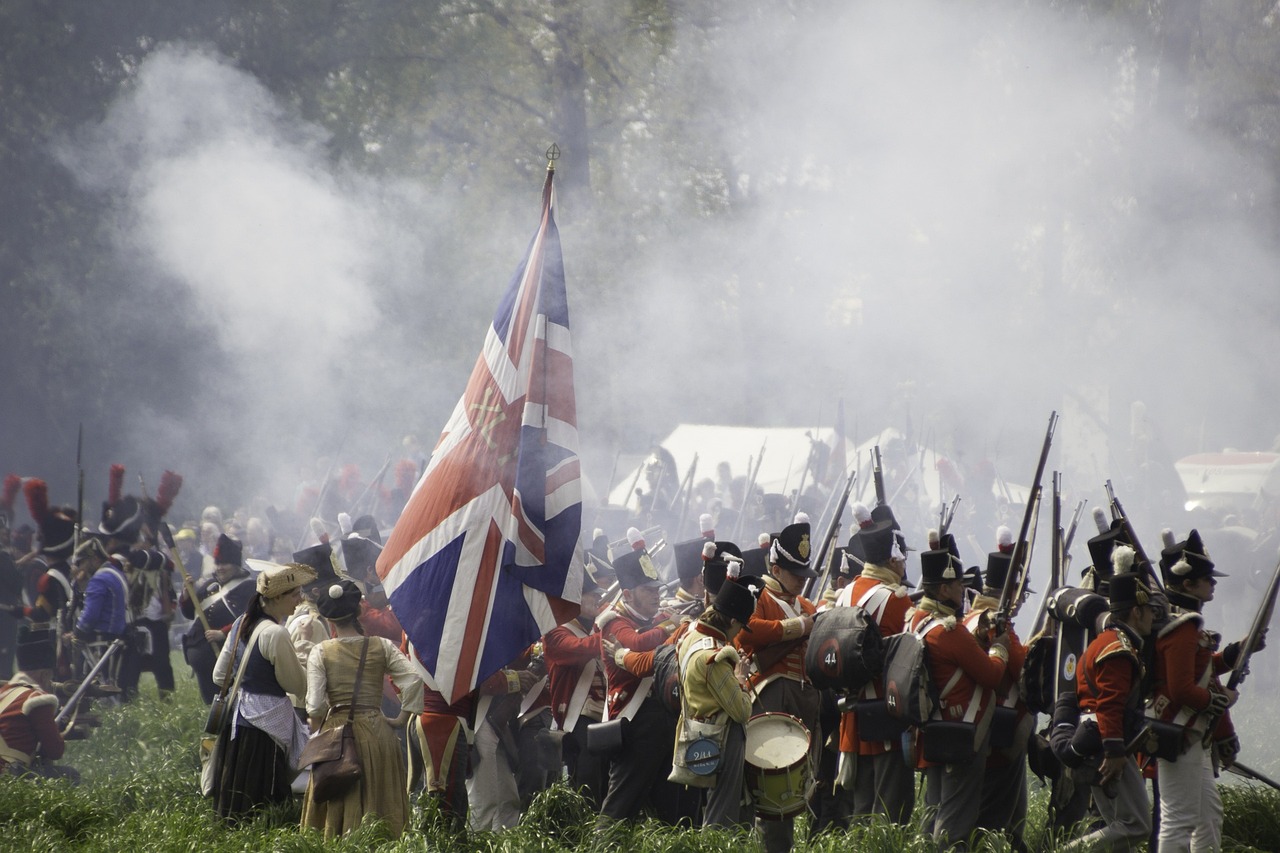Table of Contents
The Napoleonic Wars (1803–1815) were a series of large-scale conflicts reorganizing Europe and the world. They were caused by the ambitions of Napoleon Bonaparte, who wanted to spread French influence throughout the continent and beyond. The Napoleonic Wars represented the last chapter of the French Revolutionary period and precipitated a global conflict that engaged almost every major European power. With far-reaching military campaigns, breathtaking political upheaval, and massive human loss, the Napoleonic Wars cast a long shadow over global history.
Background: The Rise of Napoleon
The French Revolution (1789–1799) deposed the monarchy and installed radical social and political transformation in France. Amidst all the chaos, Napoleon Bonaparte, a gifted and ambitious general, emerged as a prominent figure. In 1799, he took over in a coup d’état, becoming First Consul and eventually proclaiming himself Emperor of the French in 1804.
Napoleon sought to propagate revolutionary principles—such as equality under the law, secular government, and nationalism—throughout Europe. His policies of expansion and military conquest frightened other European monarchies, prompting a series of coalitions against France.
Major Conflicts and Campaigns
- War of the Third Coalition (1805)
Napoleon’s quick triumphs, topped by the surprising Battle of Austerlitz, defeated Austria and Russia’s alliance. The war solidified his control of central Europe. - War of the Fourth Coalition (1806–1807)
France triumphantly defeated Prussia at Jena-Auerstedt and then Russia at Friedland. The Treaty of Tilsit in 1807 put much of continental Europe under Napoleon’s control. - Peninsular War (1808–1814)
Spain and Portugal thwarted Napoleon’s bid to put his brother, Joseph Bonaparte, on the throne of Spain. Aided by British forces under Duke of Wellington, this war of guerrilla exhausted French supplies and morale. - Invasion of Russia (1812)
Napoleon’s worst debacle. Although he took Moscow, Russian tactics of scorched earth and bitter winter caused disastrous casualties to the French Grand Army — more than 400,000 men killed or captured. - War of the Sixth Coalition (1813–1814)
Following the defeat in Russia, Napoleon was defeated by a new coalition (Britain, Austria, Prussia, Russia, and others) at the Battle of Leipzig (Battle of Nations). Napoleon had to abdicate in 1814 and was sent into exile on the island of Elba. - The Hundred Days and Battle of Waterloo (1815)
In 1815, Napoleon fled Elba and regained power for a short time referred to as the Hundred Days. His ultimate defeat at the Battle of Waterloo by the Duke of Wellington and Prussian troops brought an end to his rule. He was sent into exile on Saint Helena, where he died in 1821.
Global Impact and Legacy
- Political Reforms
The Napoleonic Wars concluded centuries of dynastic rule in Europe.
They led to increased nationalism in Germany, Italy, and other parts of Europe.
The Holy Roman Empire was disestablished in 1806.
- Legal and Social Reforms
Napoleon’s Napoleonic Code set the standard for legal systems throughout Europe and Latin America. Revolutionary notions of equality before the law, meritocracy, and secular schooling spread far outside France.
- Military Strategy
Napoleon transformed warfare by speed, organization, and strategy. His corps system and focus on artillery defined contemporary military doctrine.
- British Naval Supremacy
The Battle of Trafalgar (1805) victory by Britain secured it as the world’s dominant naval power for more than a century. - The Congress of Vienna (1815)
European powers convened after Napoleon’s defeat to redetermine borders and restore monarchies.
This created an equilibrium of power that maintained relative peace in Europe for almost 100 years up to World War I.
Conclusion
The Napoleonic Wars were not merely a series of military campaigns — they were a conflict of empires, ideologies, and revolutionary ideals. Napoleon’s legacy reformed Europe, from the form of its governments to the laws that governed its citizens. Though he was defeated in the end, his influence remains in legal systems, military customs, and the contemporary nation-state. The wars he fought irreparably altered the political landscape of Europe and the course of world history.

